Jointly organized by Japan and Taiwan, AFACT International Forum was held on March 30, 2023 at Kaohsiung Exhibition Center, in conjunction with the 2023 Smart City Summit and Expo (SCSE) in Kaohsiung City, Taiwan. This successful event was attended by representatives of the public and private sectors from Australia, Japan, Korea and Taiwan.
Carrying the theme of “Empower Digital Cities Network with Cross-Border Data for Greener Living,” the well-received Forum featured two Keynote Speeches and two Plenary Sessions, aiming to discuss how to realize greener living with digital innovation and cross-border data and how international cooperation could contribute to the implementation of SDGs mapped out by the United Nations. At the invitation of event organizers, Mr. Charles Lin, Deputy Mayor of Kaohsiung City, honored the Forum with his presence and gave a welcome statement. Stressing the strategic spot that Kaohsiung City is located at, Deputy Mayor Lin mentioned that trade facilitation is an important issue for the city as it owns two international ports. When facing the latest trends of low carbon and digitalization, it requires more innovative models for interactions with the world. He also invited the participants to enjoy the passion, beautiful scenery and delicious food that Kaohsiung has to offer to welcome all guests.
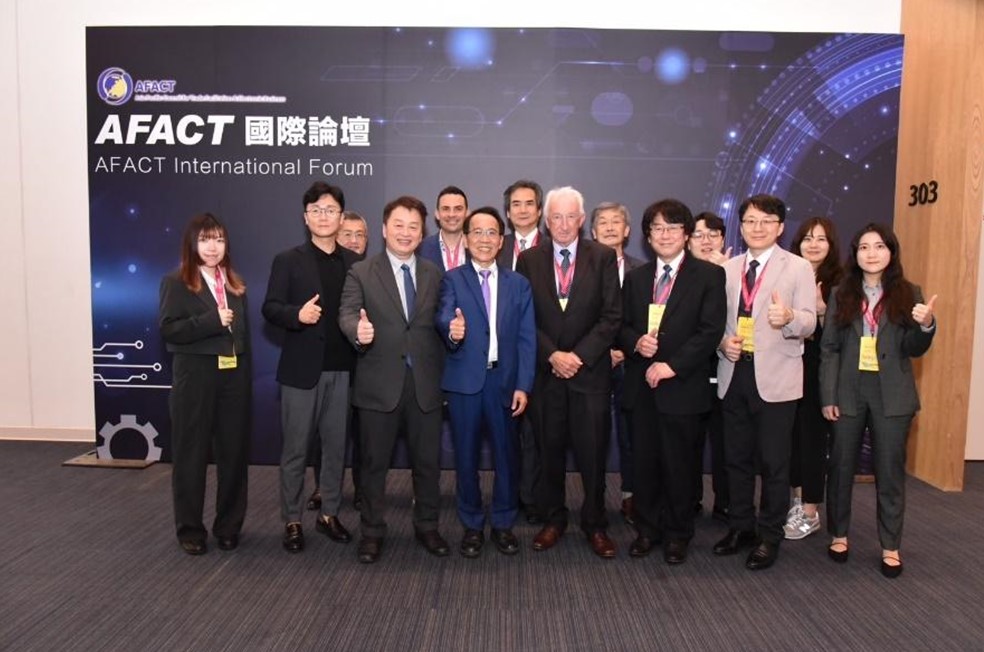
Speakers of AFACT International Forum and delegates from Australia, Japan and Korea posed for a group photo with Deputy Mayor of Kaohsiung City Mr. Charles Lin.
Opening Remarks
In the pre-recorded video message, Minister Audrey Tang of Taiwan’s Ministry of Digital Affairs (moda) recognized the importance of the theme of the Forum which underlined the idea of green economy and the value of altruism that we must pursue. Minister Tang further pointed out that moda is committed to promoting digital tools and open mindsets through building resilience for all while driving Taiwan’s digital transformation. And similarly, AFACT and The United Nations Centre for Trade Facilitation and Electronic Business (UN/CEFACT) focus on pushing for international standardization and exploring industrial and public welfare to unlock opportunities of altruism to identify potential avenues of cooperation.
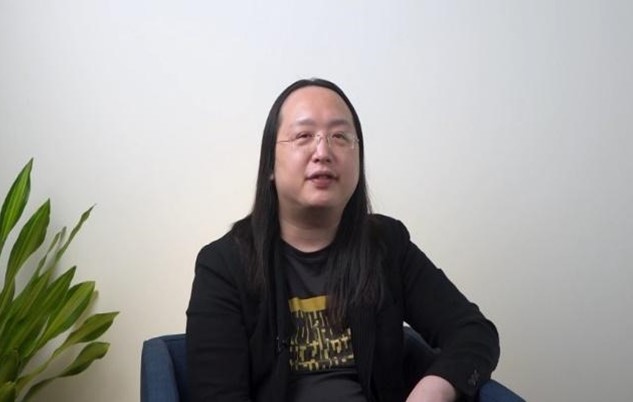
Minister Audrey Tang of Taiwan’s Ministry of Digital Affairs (moda) recognized the importance of the theme of the Forum in the pre-recorded video message.
On behalf of the organizing team of Japan, Mr. Daizo Kiyotomo, Director, Japan Association for Simplification of International Trade Procedures (JASTPRO), indicated in his Opening Remarks that the emergence of diverse technologies and the COVID-19 pandemic have limited AFACT’s activities, but Chinese Taipei proposed last year to form a new Working Group and submit new projects, which is expected to enhance the contents of AFACT in the future. He also shared a new project by UN/CEFACT to restructure the Buy-Ship-Pay data exchange for trade finance facilitation and recent UN/CEFACT activities. As the Head of Delegation (HoD) of Japan, Mr. Kiyotomo expressed the hope to continue to work with Chinese Taipei to enhance the contents of AFACT and to invite other members from Asia to participate.
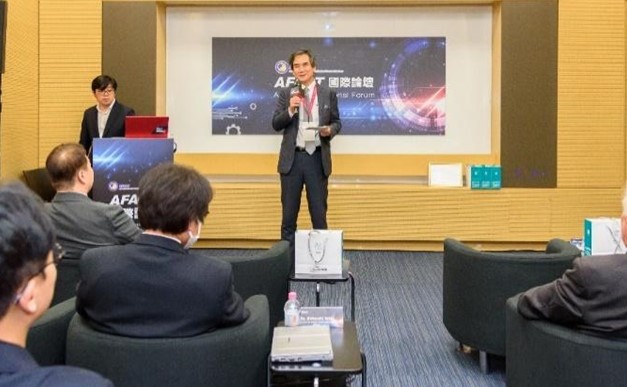
Mr. Daizo Kiyotomo, Director of JASTPRO and HoD of Japan, looks forward to continuously working with Chinese Taipei to enrich the contents of AFACT.
As the host of the Forum, Dr. Cheng-Hong Cho, HoD of Taiwan, AFACT; President of Institute for Information Industry (III), expressed his sincere welcome to all delegates who attended the AFACT International Forum, especially those who came from Australia, Japan and Korea. Noting that AFACT’s mandate to promote trade facilitation, electronic business policies and activities perfectly reflects the values that III has upheld, Dr. Cho emphasized that III has positioned itself as “The Digital Transformation Enabler” who helps plan and form public policies related to information industry and promote information communication technology innovation, and assist in the development of the digital economy in Taiwan. Therefore, III felt privileged to assume the Permanent Secretariat of AFACT in 2022 and took up the role as AFACT 2023 co-hosts with Japan. At this special occasion, Dr. Cho encouraged all the delegates to network and explore business opportunities with their AFACT colleagues from different countries, as well as to enjoy the SCSE exhibition.
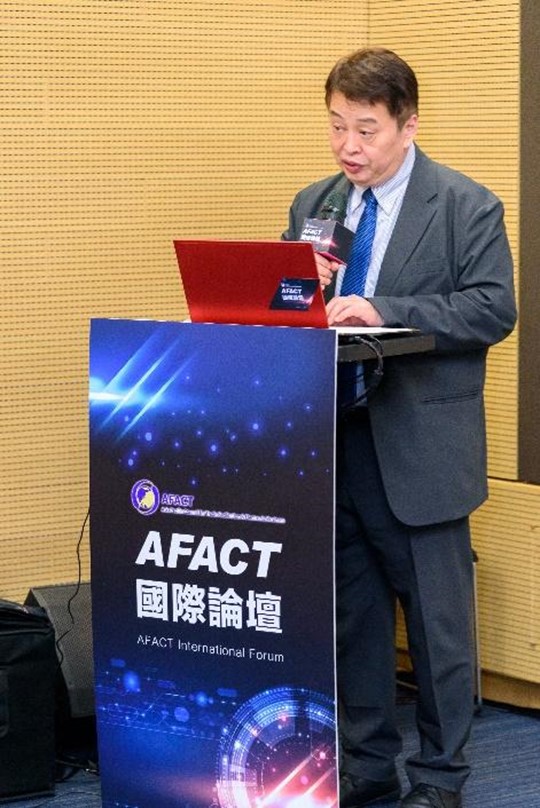
Dr. Cheng-Hong Cho, President of III and HoD of Taiwan, expressed his sincere welcome to all delegates who attended the AFACT International Forum.
Keynote Speeches
Mr. Hisanao Sugamata, AFACT Technology and Methodology Committee Chair and Asia and Pacific Regional Rapporteur of UN/CEFACT, delivered the first Keynote Speech at the Forum. In the Speech titled “AI-enabled Inter-city Delivery/Logistics in Reducing Time Consumption and Carbon Emission,” Mr. Sugamata introduced the concept of eNegotiation which is to “use artificial intelligence for contract negotiation in logistics and manufacturing. As Electronic Data Interchange (EDI) has replaced many message exchange for adjustment in logistics and manufacturing industry, the negotiation process using AI is expected to improve efficiency. Citing AI negotiation is an evolution, Mr. Sugamata also elaborated on the design concept of eNegotiation protocol, the protocol stack of eNegotiation and the utility function. He also shared practical case uses on the application in logistics, manufacturing as well as contribution to decarbonization to highlight the advantage of the eNegotiation system.
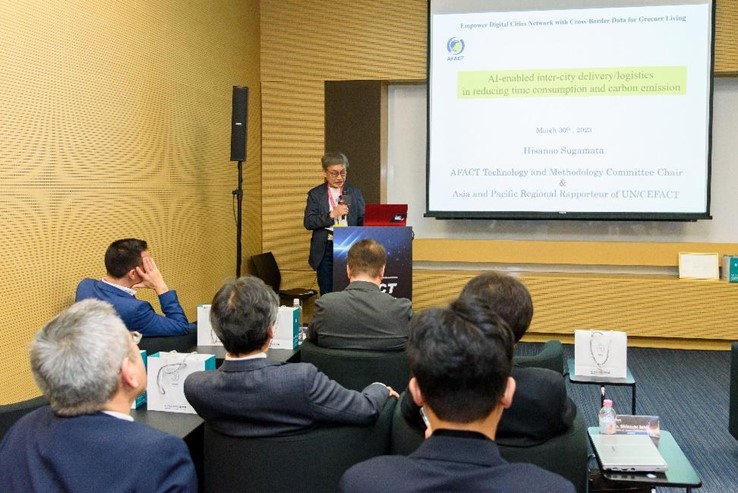
Mr. Hisanao Sugamata, AFACT Technology and Methodology Committee Chair, made the Keynote Speech titled “AI-enabled Inter-city Delivery/Logistics in Reducing Time Consumption and Carbon Emission.”
Mr. Youngkon Lee, Professor, Dep. of IT Business Management, TECH University of Korea, was the second Keynote Speaker who spoke of “Smart Contract-based B2B Electronic Transaction Standardization.” Since there are numerous examples of applying smart contracts to transactions between large companies, trade between countries and supply chain management, among others, blockchain and smart contract application standardization is already in progress by international organizations and relevant agencies. Noting that smart contracts have the following features: (1) smart contracts and execution results cannot be changed; (2) the contract will not be executed if certain conditions are not met; and (3) contracts can be fulfilled without intermediaries, Professor Lee further analyzed the advantages and disadvantages of smart contracts, the components for B2B e-transactions, the requirements, components and model of smart contract B2B e-transactions. In addition, he also presented the Authority Authentication Mechanism (AAM), Consensus Agreement Mechanism (CAM), Smart contract Verification Mechanism (SVM), Security Controller Mechanism (SCM) which are all essential to conduct smart contract-based B2B e-transactions.
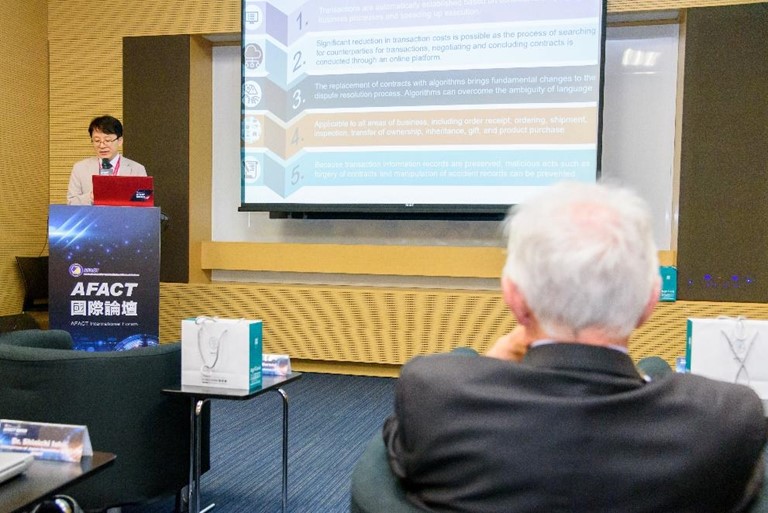
Mr. Youngkon Lee, Professor, Dep. of IT Business Management, TECH University of Korea, analyzed the standardization of smart contract-based B2B electronic transactions.
Plenary Sessions
Focusing on how to realize greener living from the perspective of smart transportation/MaaS, the first Plenary Session was chaired by Dr. Henry, I-Heng Meng, (Acting) Senior Deputy Director General, Software Technology Institute, III, and joined by the following three panelists: (1) Dr. Chien-Pang Liu, Deputy Director-General, Transportation Bureau of Kaohsiung City Government; (2) Dr. Shinichi Ishii, Chairperson of Japan Committee in 2023, AFACT; and (3) Dr. Alex Gluhak, CEO & Founder, Urban Data Collective, UK. In his presentation titled “Kaohsiung City -Smart, Safe, and Sustainable Transport Services,” Dr. Chien-Pang Liu shared the traffic characteristics and current situation of Kaohsiung City, the achievements in ITS (Intelligent Transportation System) and innovative technology development as well as the prospects and future planning of the City. Dr. Shinichi Ishii, on the other hand, made a report on “Issue for Evolving Mobile Maas in Japan” which included three parts, namely: (1) the government program for invitation of the consortiums of private sector and local government; (2) private industries entered the MaaS market; and (3) where is the future. The third panelist Dr. Alex Gluhak discussed “Improving transport infrastructure with real time data sharing and reuse” and analyzed how cities should increase the access to real-time data about their urban infrastructure and environment, and how such data should be efficiently combined and re-used to enable improvement of existing transportation infrastructure.
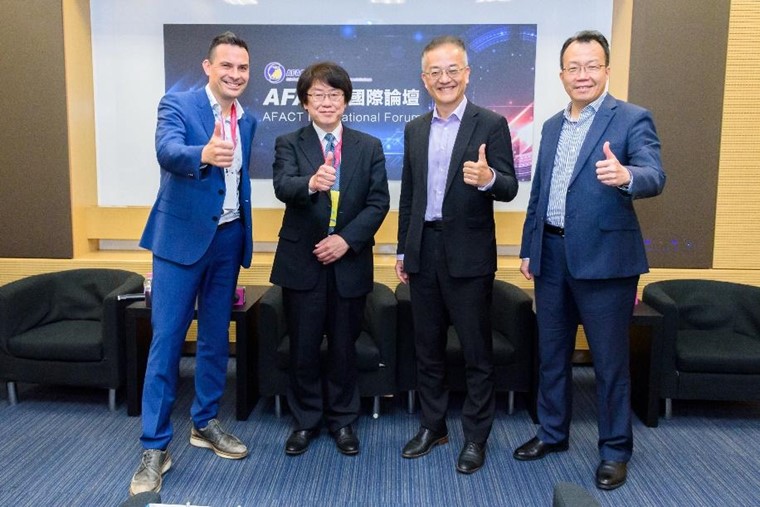
Dr. Henry, I-Heng Meng, Moderator of Plenary Session One (right), took a group photo with panelists from Japan, Taiwan and UK.
Chaired by AFACT General Secretary Ms. Vivian Huang, the second Plenary Session invited the following three panelists to elaborate on the ways to achieve a green life from the angles of agriculture SDGs and Net Zero: (1) Mr. Ian Watt, CEO and Founder - NeXTRADE World Pty. Ltd.; Vice Chair, UN/CEFACT Bureau - Program Development Areas; (2) Prof. Chin-Chang Hung, Dean, College of Marine Sciences, National Sun Yat-sen University; and (3) Ms. Won Kyung Woo, Researcher, e-Document Promotion Team, Korea Internet & Security Agency (KISA). Mr. Ian Watt’s presentation focused on sustainable supply chains, related challenges and how trade facilitation standards support sustainable supply chains and UN’s SDGs. In addition, he also introduced the UN Economic Commission for Europe (UNECE) Framework Initiative: Enhancing Traceability and Transparency of Sustainable Value Chains in the Garment and Footwear Industry as well as the key elements, standard process and data model of piloting UNECE traceability framework in a blockchain environment. The second Panelist Prof. Chin-Chang Hung shared the new concept of “blue carbon” and how the system works. Blue carbon refers to the carbon stored in coastal and marine ecosystems which sequester and store large quantities of blue carbon in both the plants and the sediment below. According to Prof. Hung, blue carbon is the key to reach carbon zero in Taiwan and it is an area worth further exploring and developing. Ms. Won Kyung Woo from KISA delivered a presentation on “Digital Transformation and Leading Paperless Projects in Korea Public Field” and examined the trusted digital transformation-oriented government policies in Korea, model cases of trusted digital transformation projects and key outcomes of the projects. Ms. Woo pointed out that the e-Document ecosystem has not only contributed to reduction of social costs but also supported digital transformation of social processes and ESG management of domestic businesses.
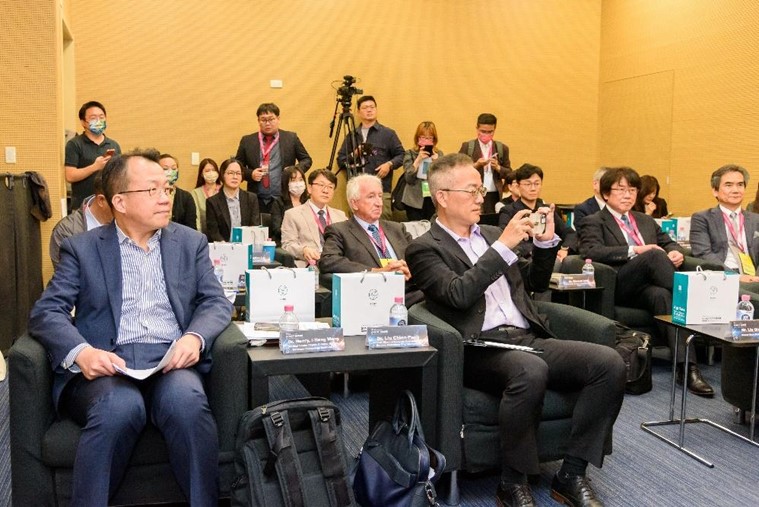
The audience listened intensively to the sharing of panelists of Plenary Session Two which was chaired by AFACT General Secretary Ms. Vivian Huang.